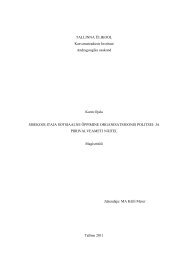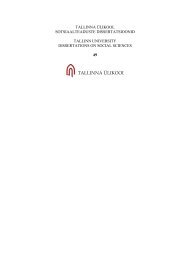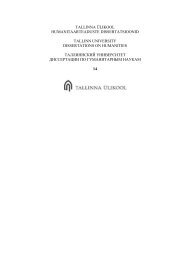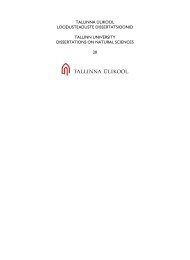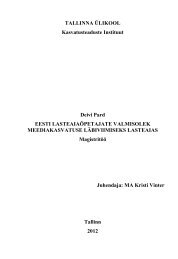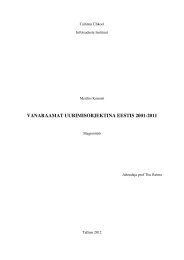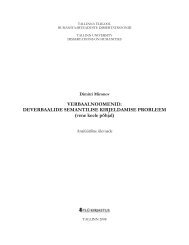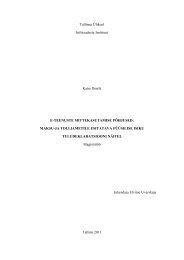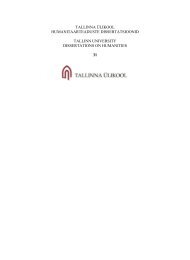Download (1157Kb) - E-Ait
Download (1157Kb) - E-Ait
Download (1157Kb) - E-Ait
Create successful ePaper yourself
Turn your PDF publications into a flip-book with our unique Google optimized e-Paper software.
Goldsmith and colleagues in “Global leadership” condemn individualistic leadership and<br />
suggest that this kind of leadership is not viable for the success of knowledge sharing.<br />
According to them unlike individualistic leaders today, successful leaders in the future will<br />
strive for integration, not control. They suggest that the singular role will give rise to the<br />
internal network of influence which alters the very foundation of an organisation. They stress<br />
the importance for leaders to develop the social architecture that encourages bright, confident<br />
people to work together successfully and exercise their own creativity. They will need the<br />
capacity for personal leadership, stemming from a deep self awareness that develops from the<br />
inside out rather than outside in. They conclude that dealing with knowledge workers, people<br />
who know more about what they are doing than their managers knows, the old model of<br />
leadership will not work and that future leaders will operate in a mode of asking for input and<br />
sharing information (Goldsmith et al., 2003).<br />
2.4.3. Technological Factors.<br />
Information technology (IT) has blossomed simultaneously with knowledge being recognized<br />
as the most valuable asset of the firm. The rise of distributed technology like intranets and<br />
Lotus Notes has had major implications for knowledge managers - and not all of these<br />
implications are positive. On the one hand, IT has reduced costs and accelerated the process<br />
of transferring best practices and knowledge. On the other hand, in many cases IT has created<br />
a flood of knowledge that has seriously overloaded the capacity of employees to understand<br />
their environment (O‟Dell & Grayson, 1999).<br />
While many people would think that IT facilities are only what they need to facilitate<br />
knowledge sharing, they forget the danger of not balancing IT facilities to the amount of<br />
information needed. According to Elliot and O‟ Dell, IT availability doesn‟t guarantee the<br />
enthusiastic participation of employees in collecting and sharing knowledge. They suggest<br />
one of two obstacles may prevail. They see the problem of employees sharing little<br />
information or alternatively flooding the system with information. According to them,<br />
technology cannot drive the sharing of competitive intelligence information, nor can it sort<br />
relevant information and insist that the role of human factor is necessary to mediate (Elliot &<br />
O‟Dell, 1999).<br />
24





